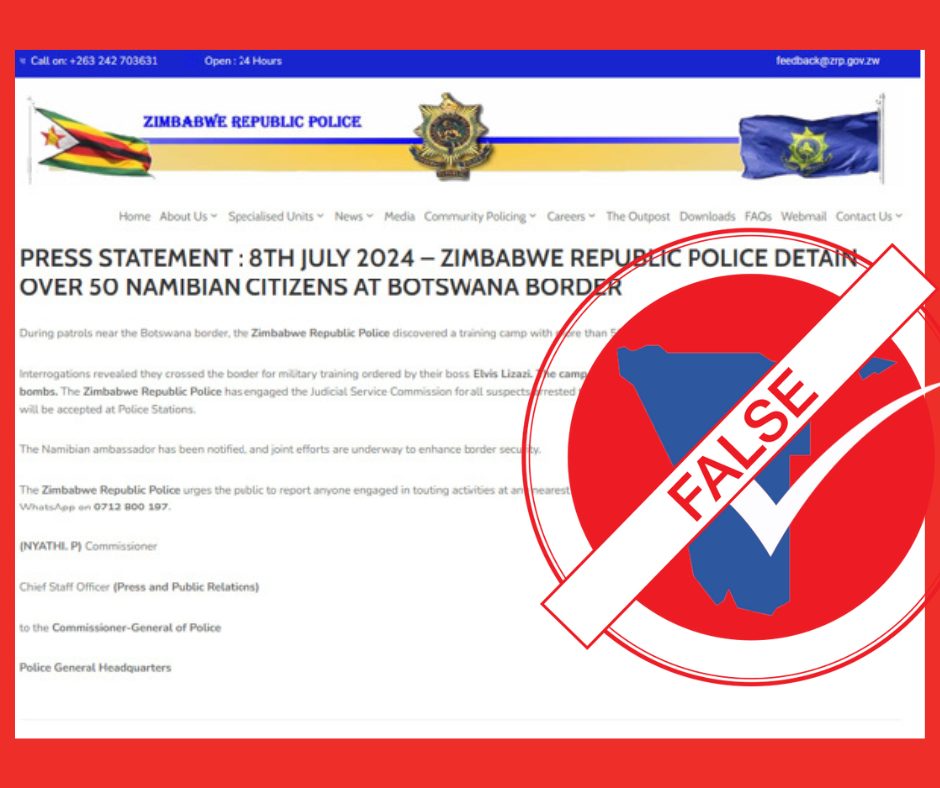IMAGE: Namibia Fact Check / Ghanaweb
Articles posted on a Ghana-linked news aggregation website have caused a stir in one of Namibia’s neighbours and a diplomatic incident
This is a cautionary tale of how election or political disinformation causes problems beyond those directly targeted or affected and ripples across borders, drawing in responses from foreign governments and actors.
Two recent Namibian politics related disinformation incidents demonstrate this aptly, as well as how disinformation actors are engaging in narrative laundering in attempts to discredit a prominent political figure and political movement.
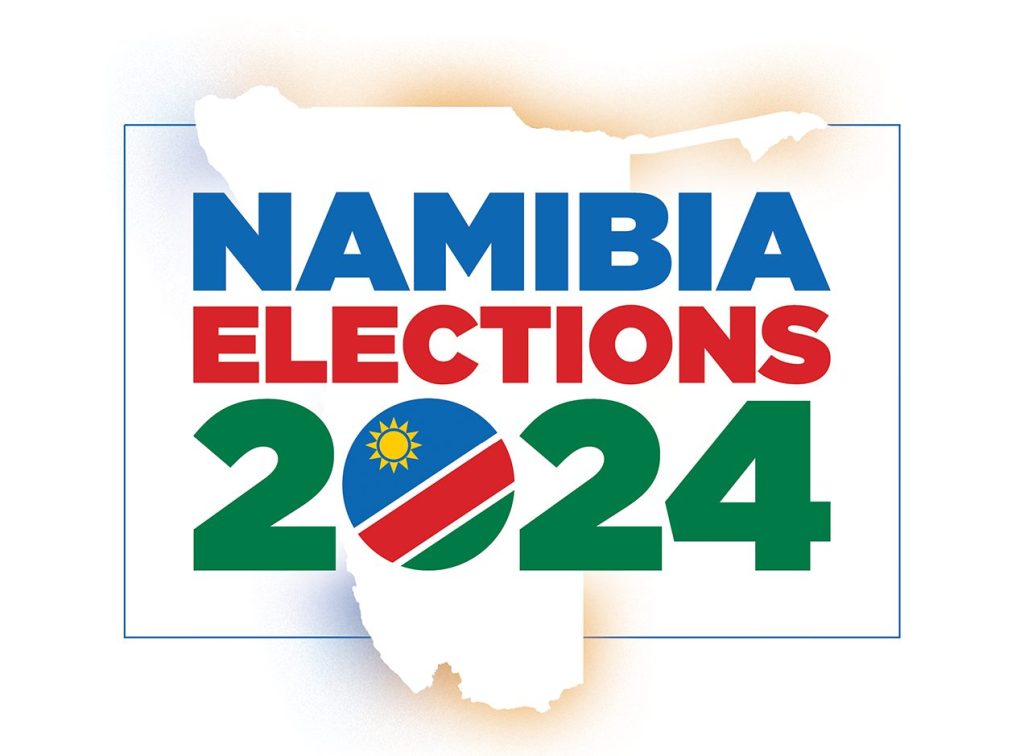
The two incidents are:
- The British government letters hoax – The existence of letters or correspondence that is claimed to show that the Independent Patriots for Change (IPC) and its leader, Panduleni Itula, are funded by the British government;
- The Zimbabwe military bases hoax – That the IPC was implicated in the existence of secret military training camps in Zimbabwe, which have been exposed and broken up by the Zimbabwean police.
The narratives that the disinformation agents are attempting to launder via these incidents are that:
- First, the IPC and Itula are foreign-funded fronts;
- Second, that the IPC is a national security threat that intends to violently overthrow the Namibian government.
The British government letters hoax
This incident played out from late June through July 2024 and involved the existence of letters or correspondence between the chairperson of the UK Parliament’s International Development Committee, Sarah Champion, and the British Foreign Secretary David Cameron that showed that the British government was funding the IPC.
The funding link was denied by both the IPC and the British High Commission in Namibia in early July 2024. However, the narrative had by then made it into the headlines of Namibian mainstream media.
This was not the end of it though, for in mid-July images appeared online suggesting the existence of more such letters that purported to show that the IPC was being funded by the British government, with the narrative also being spread via an article published online by the Ghanaian diaspora-focused news aggregation website GhanaWeb, which is actually based in the Netherlands, on 15 July 2024.
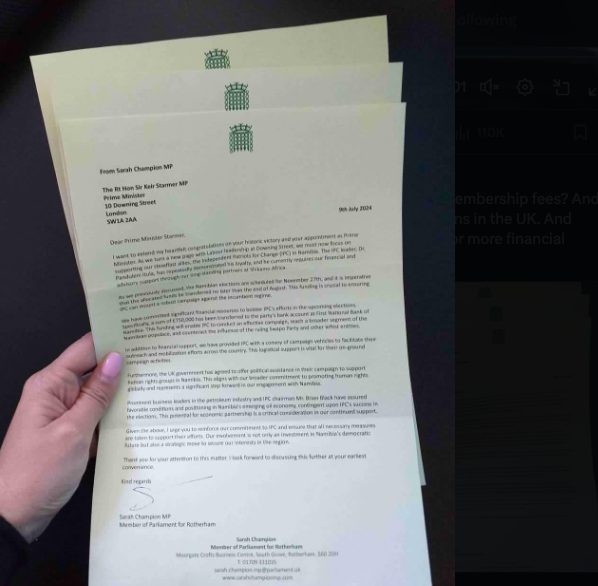
The narrative, including the above image, of the IPC being funded by the British government then was also promoted and amplified by various Namibia-linked social media accounts, along with other social media content that visualised the narrative, such the images below, through the rest of July 2024.
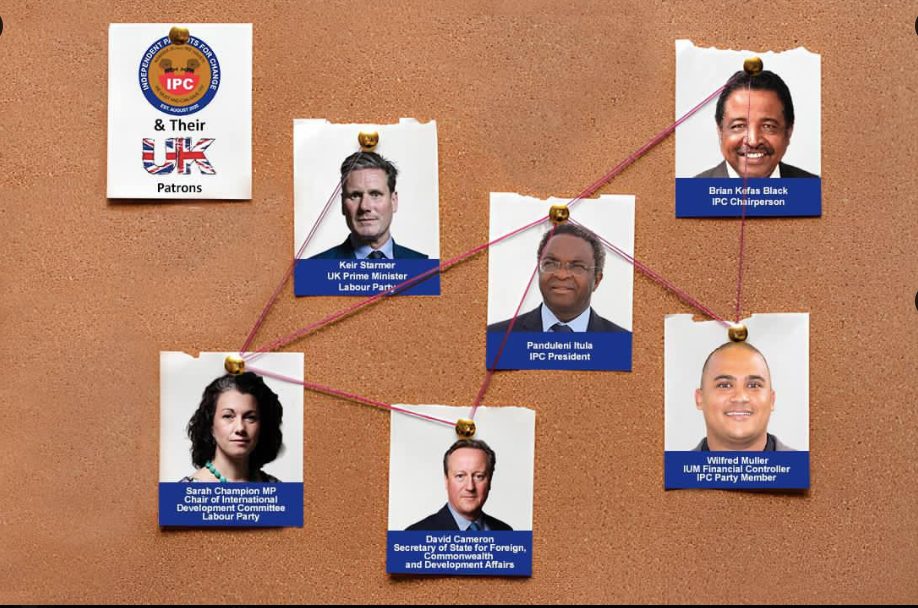

The narrative refused to die down and this ultimately prompted the British High Commissioner to Namibia, Charles Moore, to issue a statement distancing the British government from the narrative surrounding the IPC, in a clear demonstration that it was stoking a diplomatic incident.
At the same time that this narrative was circulating, another emerged.
The Zimbabwe military bases hoax
This narrative also appears to have initially been laundered via the Ghanaian diaspora-focused news aggregation website GhanaWeb in mid to late July 2024, in an article headlined “Namibian citizens found in Zimbabwean military training camps“. The article in question has since been deleted and the link to it directs to an empty webpage that simply states “Article ‘1940873’ does not exist“.
The narrative was built around what has since been labelled a fake “press statement” by the Zimbabwe Republic Police. The fake “press statement” (image below) states that 50 Namibians, along with various weapons and other military equipment, had been arrested at a secret military training camp in Zimbabwe, close to the border with Botswana, and that they had implicated the IPC regional chairperson of the Zambezi Region, Elvis Lizazi, as their “boss”. The narrative being pushed was clearly that the IPC was preparing for violent insurrection reminiscent of the Caprivi secessionist insurrection of the late 1990s, hence the Zambezi connection.
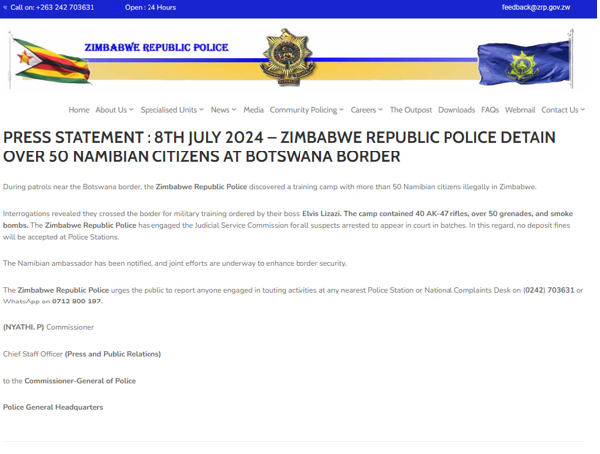
Shortly after the fake “press statement” and the GhanaWeb article about it started circulating in Namibian social media spaces, the Zimbabwe Republic Police appears have become aware of it too and issued a media release (image below) on 21 July 2024 denying the claims contained in the “press statement”.
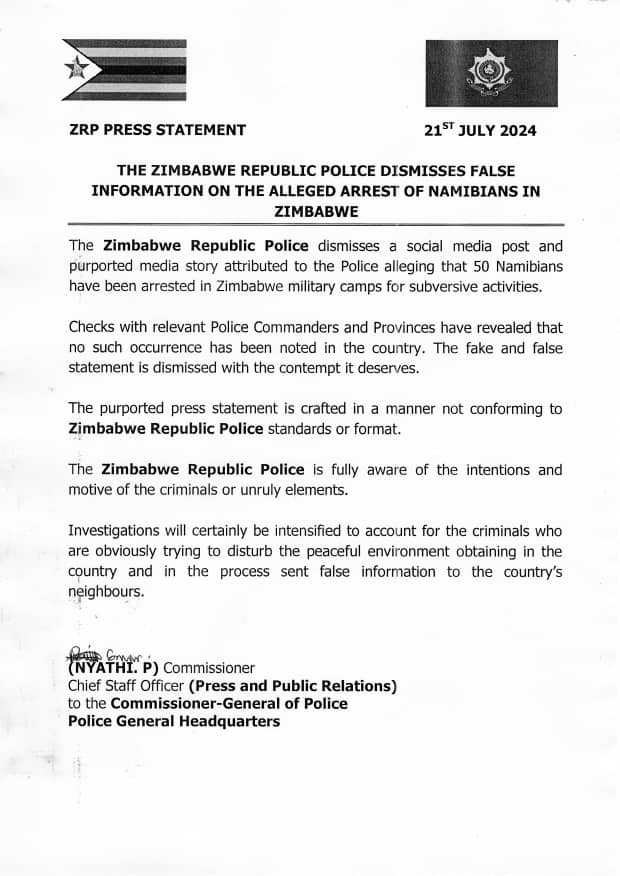
The Zimbabwe Republic Police press statement was picked up and reported on by both Zimbabwean media (see here and here) and Namibian media (here). It was around the time that the Zimbabwe Republic Police issued the above press statement that the GhanaWeb article was deleted.
Despite this, the narrative continued to circulate in social media spaces (image below), promoted and amplified by certain accounts, along with the narrative of the IPC being a foreign (British) controlled puppet.
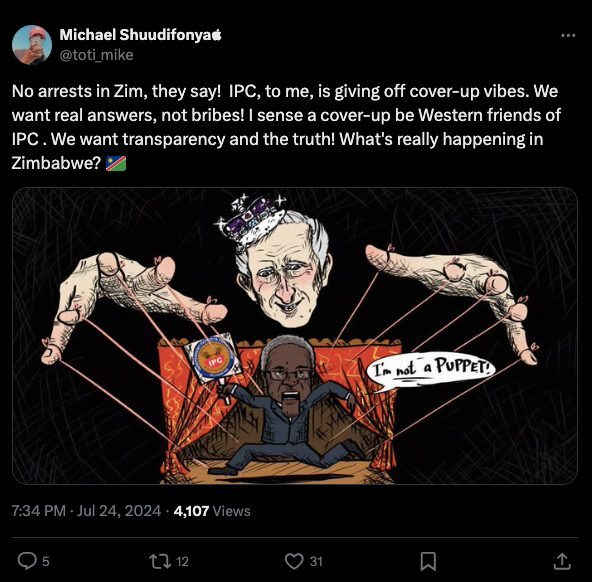
These narrative laundering attempts form part of what appears to be a coordinated smear campaign targeting the IPC and Panduleni Itula.
What is notable about these disinformation incidents is how they dragged both British and Zimbabwean government actors in, via a Ghana-linked website that is based in the Netherlands, while at the same time using social media accounts to amplify specific damaging narratives in order for them to eventually be picked up my traditional or mainstream media, which through their reporting then lend a measure of credibility to the claims pushed through these narratives.
This article forms part of Namibia Fact Check’s #NamibiaElections2024 coverage.

